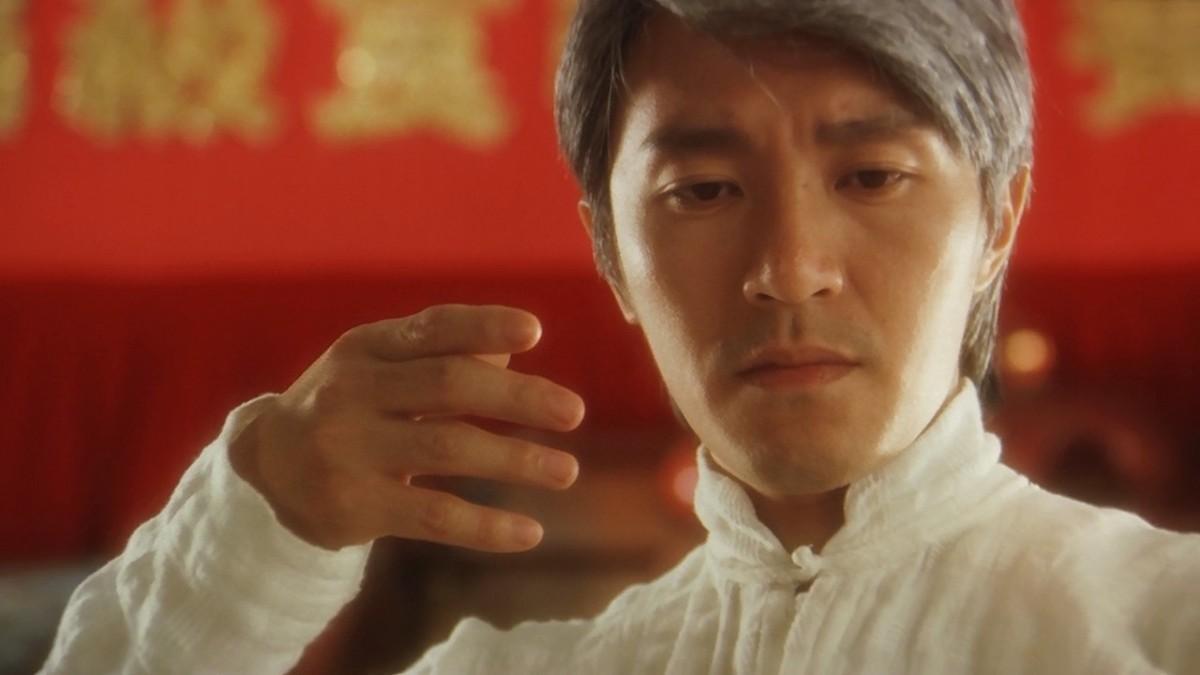
Film multihyphenate, actor and filmmaker Stephen Chow’s resumé in film has plenty of titles his fanbase can discern as emblematic of his successful thirty-plus year run in the industry. His 1996 entry, The God Of Cookery, is certainly a beacon for Hong Kong Cinema’s audience, and a certainly fitting entry into this year’s food-themed second-annual Winter Showcase for the New York Asian Film Festival.
The film is directed by Li Lik-Chi alongside frontman Chow who leads as “Stephen Chow”, a top-lining chef hailed as a divine go-to arbiter in culinary expertise. He’s admired by the industry, and to that end, he’s as elitist and cocky as one would expect, and far from ‘humble’ and ‘kind’, and these are all the latest seeming first-hand experience of Fat Bull (Vincent Kok), a sniveling low-level employee who Chow tests as a metric of obedience.
It’s also one of the last acts of authority Chow executes before being epically checked in a daunting twist of fate during Chow’s fiftieth-restaurant launch ceremony. In Chow’s almost similar surgical fashion, Fat Bull dissects one of Chow’s dishes with a measure of failure every which way, and tops him with a dish of his own, resulting in a swift, underhanded corporate takeover of Chow’s company and title as “God Of Cookery”.
Smeared in the headlines as a fraud and a failure, Chow’s downfall finds him landing on Temple Street, a seedy district where a chance meeting of minds with Turkey, an uncouth noodle cook who works her own stand, sets off what could be his first step to getting back everything he’s lost. The story unravels even more for Chow, whose riches-to-rags journey ultimately finds him learning the true meaning of humility, through loss and harrowing near-death survival, to eventual enlightenment.
Chow’s brand of comedy stands strong and timeless through films like The God Of Cookery, a food comedy that rightly taps into its zaniness and over-the-top antics to even out with its palpable subtexts touching mildly on social class and wealth. Exemplary of this is a moment midway in the film where Turkey awakens Chow from lying unconcious in a dank and rat infested alley and feeds him. It’s a perfect paradigm of character development between that moment and his entry of the film, and measured perfectly in the writing to further span his character progression.
Part of that development plays handily throughout the Temple Street scenes with actress Karen Mok’s performance a Turkey. She’s a boss among bosses as Chow witnesses how she settles business matters. She’s tough and self-reliant, though these aspects of her leadership haven’t come easy as she’s had to deal with more than her fair share of hardship and torment, and with at least one noticeable beacon of hope that even finds Chow stumped for words.
If you’ve seen films like Brad Bird’s Ratatouille and even Yoshitomo Yonetani’s anime production of Shueisha’s Food Wars, you’ll spot sprinkles of elements in The God Of Cooking that you’ll wholly relate to. Scenes like where actress Nancy Sit’s character, The Princess Of Taste, can’t help but give an illustrative reaction to the final competing dishes between Chow and Fat Bull, will resonate greatly; Just know that Chow and Li do manage to avoid getting too tongue-in-cheek for their brand here.
The God Of Cookery is a jovial and hearty Asian cinema classic. After twenty-four years, it’s still a huge treat, and a reminder why Chow is still a celebrated comedy legend to this day. Take this film, put it on a plate, serve it to your friends and tell ’em to dig in!
